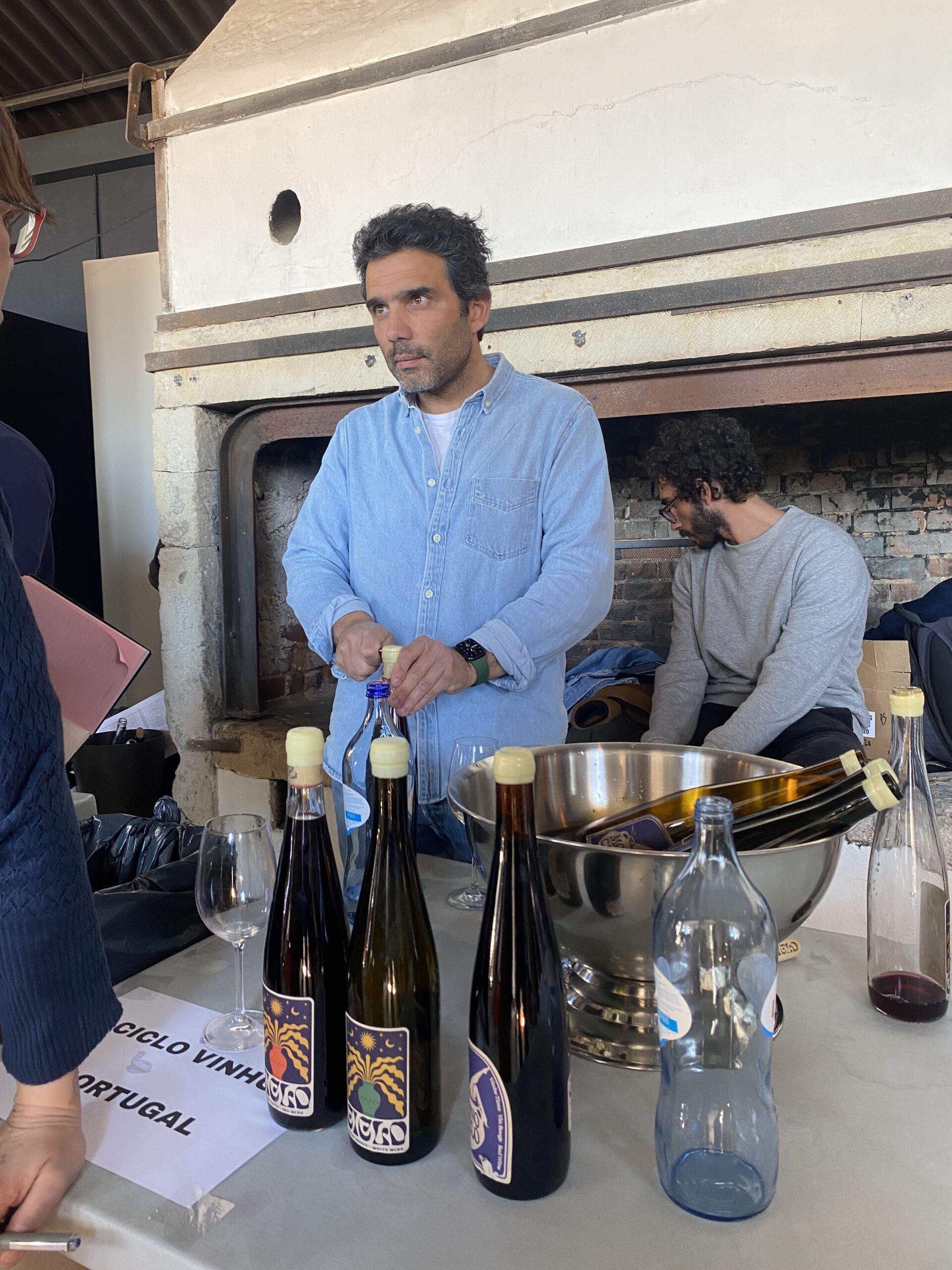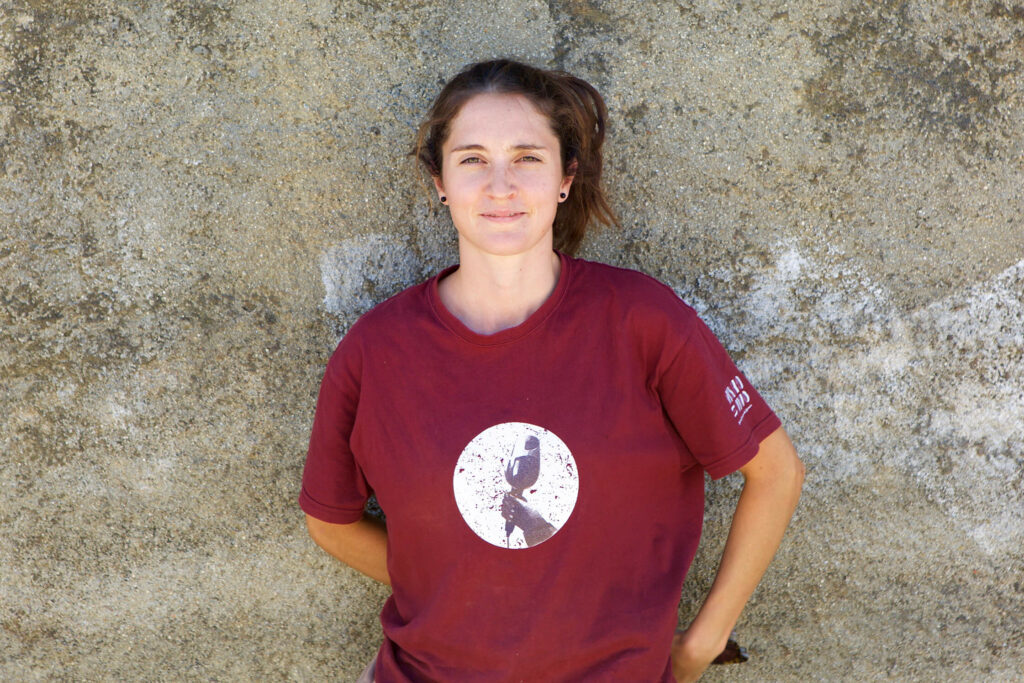Ciclo Vinho is a project located in the southern region of Alentejo, the biggest province of the country and covering almost a third of Portugal. The region is known for its warm climate, stretched out hills, cork trees, olive oil production and of course wine. The soil differs from region to region within Alentejo. What generally applies to a lot of the wines, grown within the rural areas of Alentejo, is a thick jammy flavor full of fruits.
Ciclo Vinho is a bit different from what we expect of Alentejo wines though. Located at some altitude, around Estremoz, the climate is slightly more fresh and more humid than most of Alentejo. This of course has an effect on the way the grapes grow, produce sugars and mature. Therefore the wines produced by Ciclo are more fresh and easy to drink than the classic Alentejo wines, while not losing touch with its sunny roots.

Processing the wines
The fruit comes from wild vines of old native grape varieties that grow around the region. Hugo, the creator of Ciclo Vinho, doesn’t own its own vineyards but buys organic grapes from local smallholder farmers and families. Something that is not uncommon in the way Portuguese vineyards are set-up. A lot of small local plots, instead of big producing farms.
In the cellar of the small independent house Hugo Campos works on making the best wines he can, while intervening with the natural process as little as possible. Spontaneous fermentation happens in fiberglass, steel vats, old oak barrels and some in clay amphora’s or ‘Talha’s’ as the Portuguese call it. The technique of the talha was left behind by Romans in Alentejo, after discovering the clay rich soils of the region and is making a comeback in modern days. The wines are naturally fermented, unfiltered, unfined and with minimum added sulfites.

Bottling and labels
The bottles Ciclo uses are lightweight, the labels are made of recycled paper and the corks are sealed with biodegradable wax. All in an effort to produce wines in the most sustainable way possible. Using these lightweight bottles saves up to 400 grams of weight per bottle, adding up to about 250 kg per pallet that is transported. Making a lot of difference in Co2 that is put out by trucks transporting the wines. “Drinking a bottle of wine is not going the change the world, but we can at least try our best to do things in the best and most sustainable way possible” Hugo says. We couldn’t agree more.

Has all of this made you curious to try a bottle?
Order yours now!


